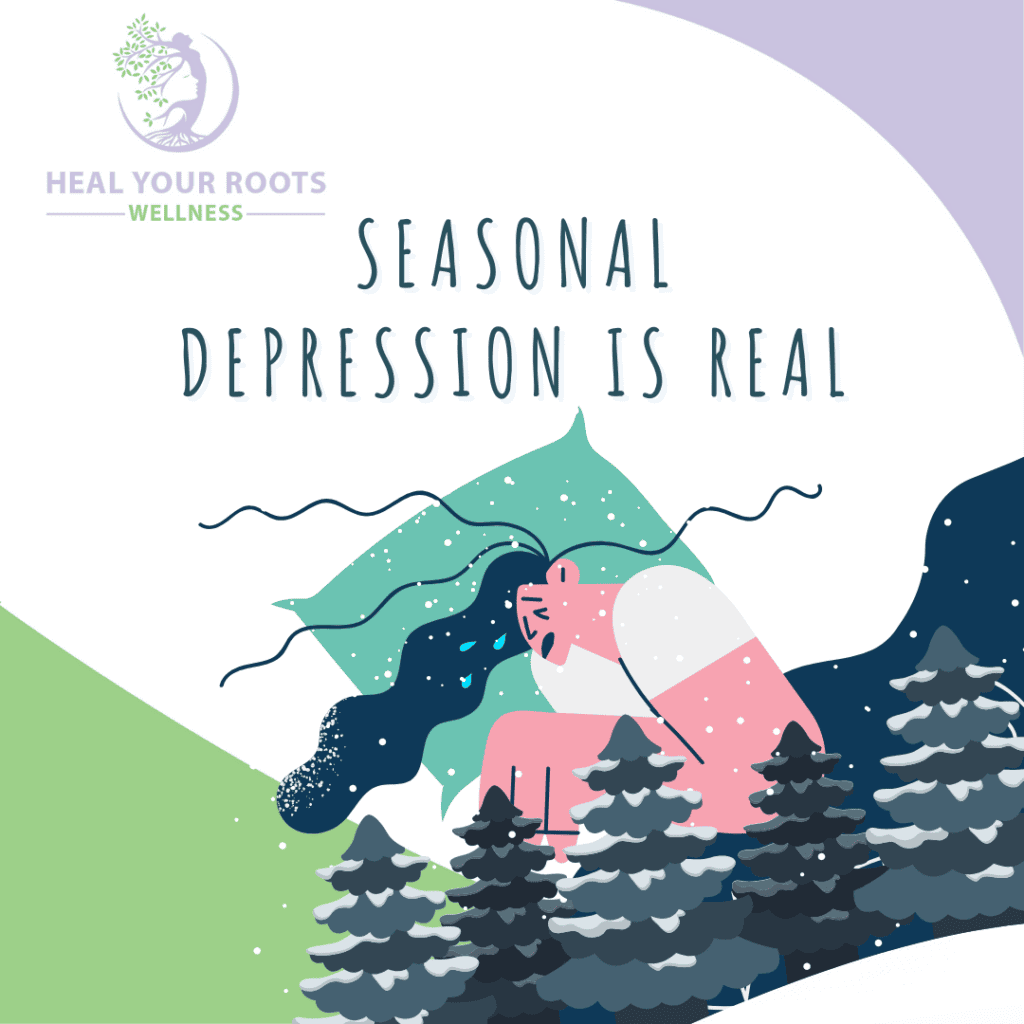What is Seasonal Affective Disorder (SAD)?
Do you feel like the winter months are dragging on? Seasonal Affective Disorder, or SAD, is a real medical condition that impacts about 5% of adults in North America. As the seasons change and winter approaches for some people this can mean depression symptoms!
What are the symptoms of Seasonal Affective Disorder (also known as Seasonal Depression)?
Seasonal Affective Disorder (SAD), often referred to as “Seasonal Depression” affects people differently depending on what causes it. Symptoms can include depression, anxiety, insomnia and overeating.
How to deal with the symptoms of Seasonal Depression?
There are steps you can take to manage SAD even if it’s not curable. Read more about SAD here with our list of 10 things to do when suffering from SAD.
Tip #1 – Get natural sunlight. Take a walk outside, even if it’s cold. The sun is actually more powerful when there are clouds because its UV rays are able to penetrate through them easily.
Tip #2 – Get fresh air into your home or office by opening windows
Tip #3 – Use a Light Therapy Box for 30 minutes a day. In absence of natural light, try light therapy to help SAD symptoms. SAD lamps emit bright lights that mimic natural outdoor lighting and can be very helpful for enhancing mood and energy. It is recommended to start this in August to prepare for the darker Fall & Winter months, and keep it at eye level.
Tip #4 – Supplement with Vitamin D during the winter months to reduce risk of developing SAD symptoms. The sun naturally helps produce Vitamin D and with the decreased sunlight during winter months, it’s important to find ways to increase our Vitamin D intake.
Tip #5 – Regular exercise can reduce SAD symptoms. Any kind of movement can help stimulate the release of endorphins, dopamine, norepinephrine, and serotonin. These chemicals in the brain play a huge role in enhancing our mood.
Tip #6 – SLEEP! SAD sufferers tend to sleep longer and have more trouble sleeping at night, so be sure you’re getting a full eight hours of shuteye every night. Create a nightly ritual with a consistent bedtime and wind down.
Tip #7 – Eat a nutritious diet that is high in Omega-three fatty acids. SAD sufferers tend to have lower levels of these, so consider adding more salmon and sardines into your diet.
Tip #8 – Try Cognitive Behavioral Therapy for SAD, which is a combination of psychotherapy and lifestyle changes. SAD is a serious condition that needs to be treated by qualified medical professionals. If you’re struggling with SAD, please seek help from your doctor or mental health professional immediately.
Tip #9 – Plants in your home can help SAD sufferers feel better, so consider adding some plants.
Tip #10 – Socialize with people you care about. SAD sufferers tend to withdraw from people when they’re depressed, and while it may feel difficult to socialize, isolation exacerbates the symptoms. Consider going out and doing something you enjoy with friends or family.





